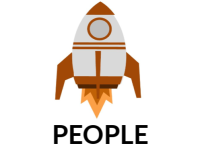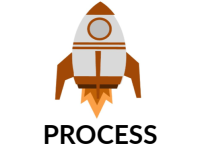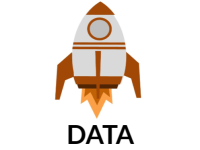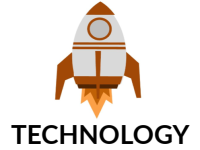On December 6, Kelle O’Neal and John Ladley were co-presenters on DATAVERSITY’s Trends and Predictions for 2019 webinar.
They were joined by Shannon Kempe from DATAVERSITY and data management professionals who were interested in hearing Kelle and John reflect on the past year and how 2018’s key industry learnings could inform and shape 2019.
If you’d like to listen to the one-hour webinar, visit DATAVERSITY’s on-demand archive. You can find our presentation material here on SlideShare.
Another option is to keep reading as we share highlights from the webinar. What’s not included below is Kelle’s and John’s commentary and their advice on how to “ride” the people, process, data and technology trends. And when you listen to the webinar replay, you’ll hear their key takeaways from this program. Ready to listen now?
Industry Learnings from 2018
- Data management (including analytics and big data) has shifted to a capabilities-first mindset.
- Data governance is evolving to be more collaborative, user-empowered, user-supported and automated by augmented analytics-driven technologies.
- Process-centric approaches have become more balanced with data-centric approaches.
- The demand for technology enablement — and frustration with the pace of process-centric processes — has resulted in data-centric processes becoming more mainstream.
- Across the enterprise, business people are becoming more data literate and more capable of articulating data requirements.
Trends and Predictions for 2019

Rise of the CAO, Data Literacy and Citizen Data Scientists
– The rise of the Chief Analytics Officer (CAO) will require clear boundaries for the roles and responsibilities for optimizing data (e.g., CAO vs. Chief Data Officer vs. Chief Digital Officer). This will also lead to less distinction between process-centric and data-centric roles.
– Data literacy will continue to mature. Data-driven organizations are closing the gap between what is known about data to drive capabilities today — vs. what needs to be known about data to drive future enablement.
– Citizen data scientists will become more prevalent. Empowered by self-service analytics and data science automation, business users will generate their own insights and smooth the path for data democratization and enterprise-wide collaboration.

DG 3.0, RPA and Business Rules Engines, Augmented Analytics and Digital Twins
– Data Governance 3.0 will expand the defensive scope of governance to better leverage new capabilities of self-service analytics and machine learning.
– Robotic process automation (RPA) and business rules engines will make analytics more intrusive to day-to-day business processes.
– Augmented analytics will contribute to automatic intervention in business processes.
– Digital twins and other virtualization tech (a.k.a virtual reality) will require greater scrutiny of data quality and data meaning.

Privacy, Ethics and Regs, Data Acquisition, Broad Use of External Data Sets
– Privacy, ethics and regulations are becoming a competitive advantage.
– Data acquisition will become more refined and challenging due to digital twins, edge computing and smart spaces.
– Broad use of external data sets will facilitate the need for integration and sourcing to become more of a critical consideration.

Machine Learning and AI, Data Virtualization, Data from Autonomous Things and Market Maturity
– Machine learning and Artificial Intelligence (AI) will dominate data management conversations at the leadership level.
– Data virtualization will, if not already, exist as a certified tool in the technology tool box of most organizations.
– Data from autonomous things will lead to greater reliance on edge and quantum computing.
– Market maturity will create a boom in data-oriented technologies and technology companies.
Thanks, DATAVERSITY!
We’d like to thank DATAVERSITY for including us in its Data Insights & Analytics webinar series. It’s been a great experience over these last two years. If you’d like to look back on our 24 (!) DIA webinar topics and our quick-read recaps, you’ll find them here on our blog.


